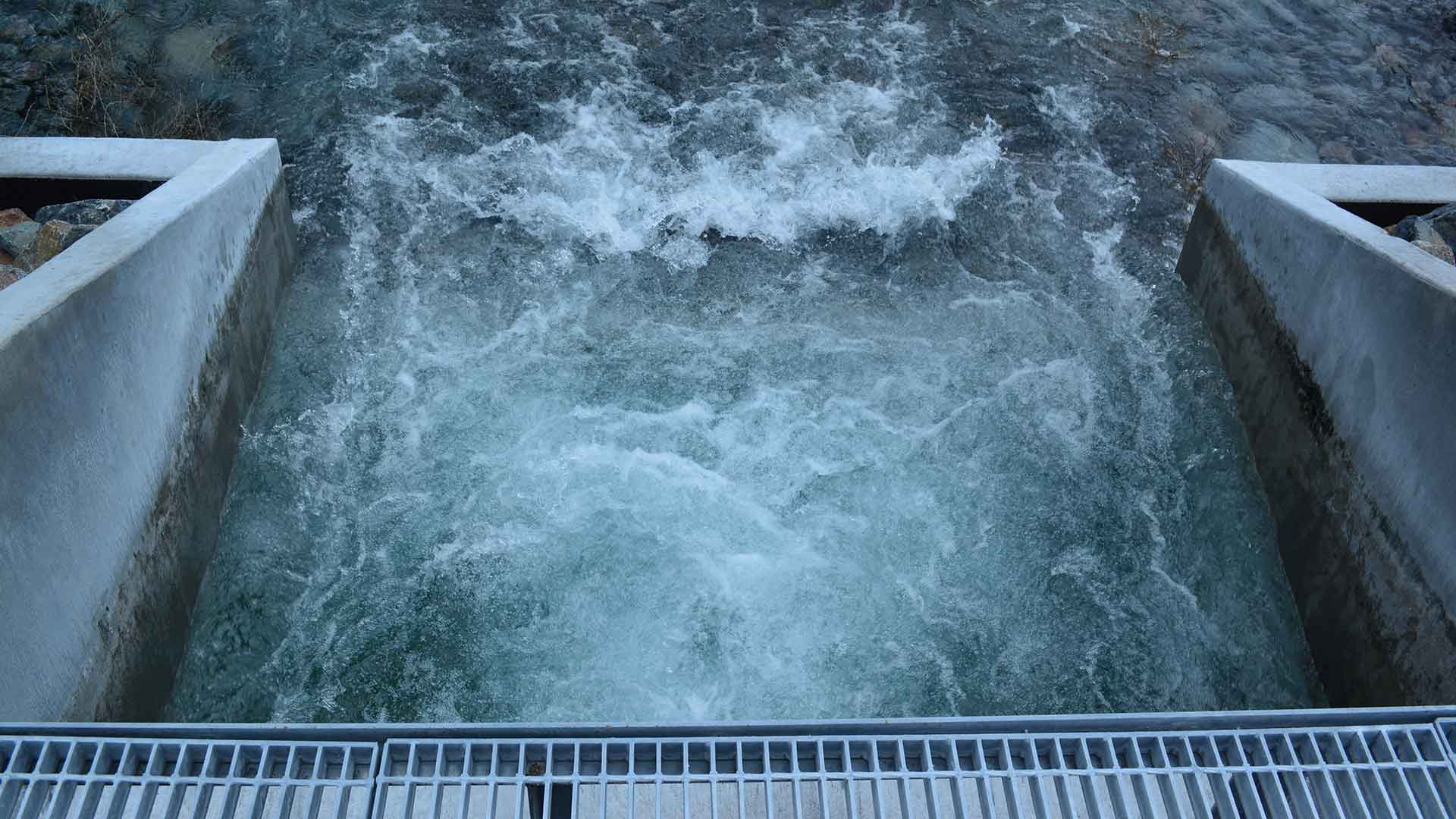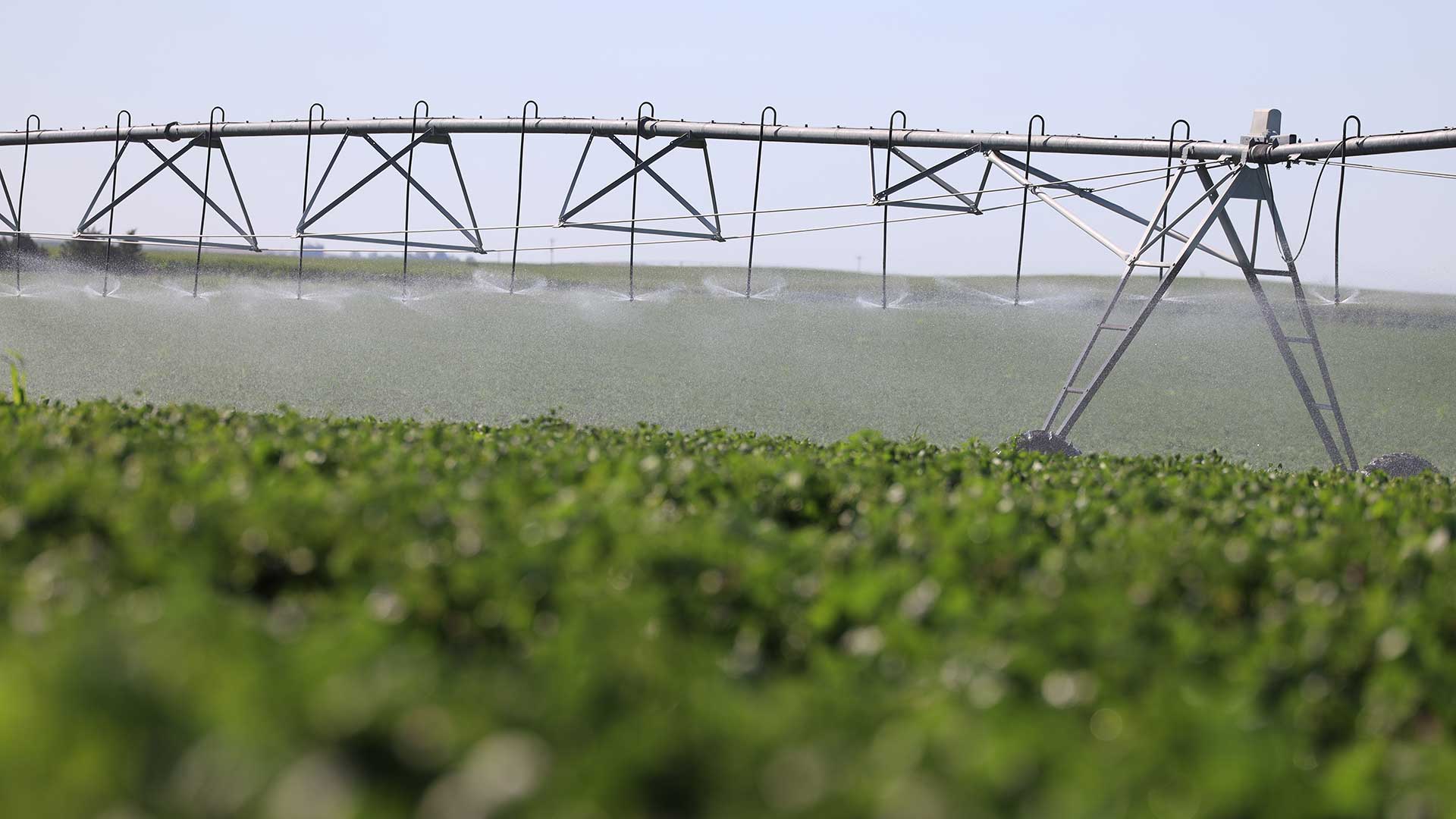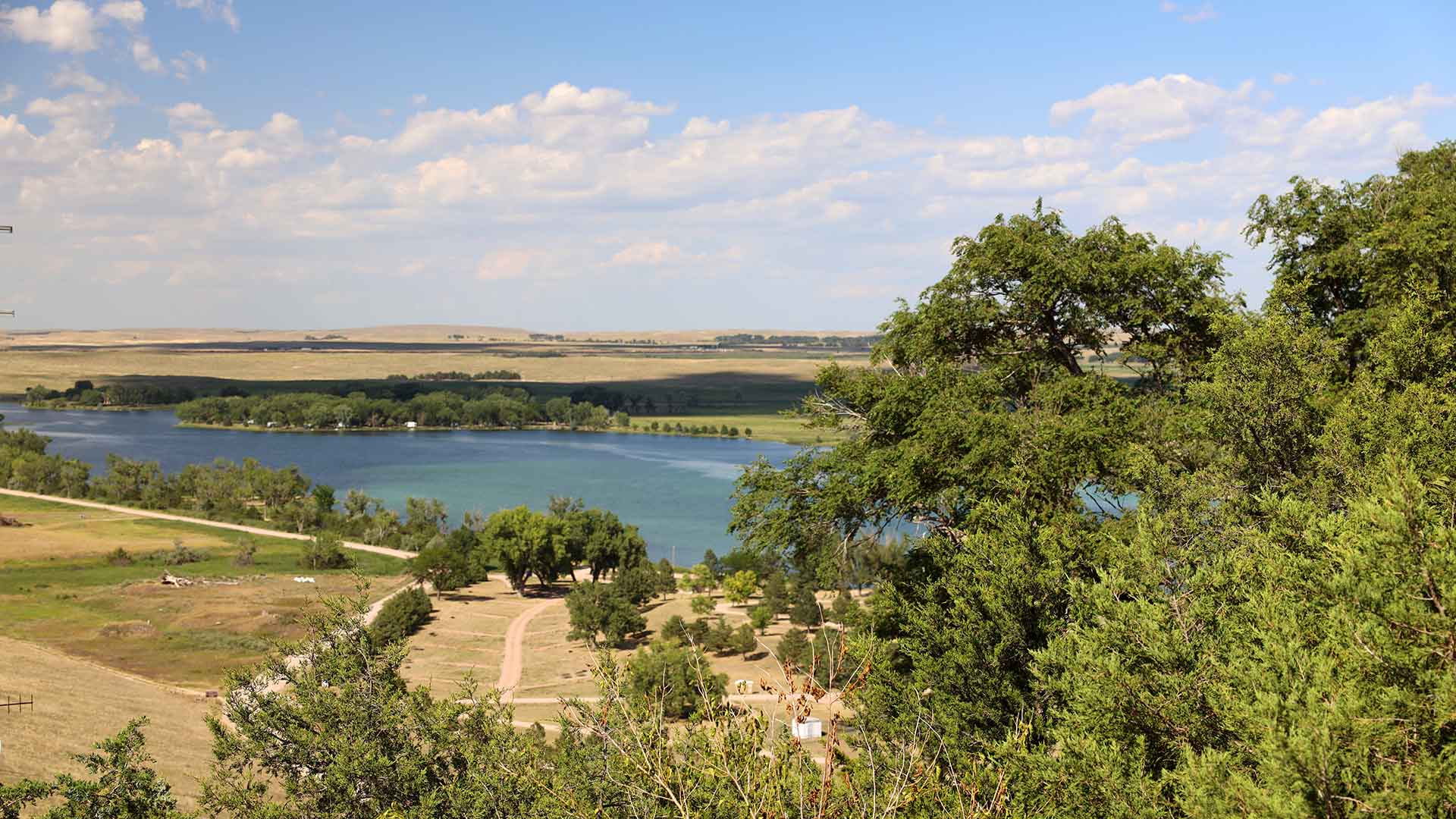Groundwater transfer success stories guide water managers in meeting local water needs
Groundwater transfer mechanisms are a flexible agricultural water management approach that can help lower growers’ production risks without jeopardizing environmental needs. While groundwater transfers are currently popular in the water policy debate, there are few documented examples of their practical implementation, and in particular of how transfer design can be adapted to local hydrologic needs.
A new report produced by DWFI and the National Drought Mitigation Center (NDMC) documents successful experiences in navigating complex agricultural management issues using groundwater transfers.
The report discusses different water market strategies designed to meet local agricultural water management needs while considering environmental goals, hydrologic differences, and crop-growing practices. The report shares findings from studying rules, regulatory frameworks, and practices around groundwater transfers in Nebraska to provide guidance for practitioners interested in establishing new water markets to address their own local water management concerns.
Within the state of Nebraska, a wide variety of formal and informal groundwater transfer schemes have been operating for decades. The unique structure of these transfers is a result of a strong and tested regulatory and non-regulatory local groundwater management focus in the state.
Three key insights were derived in the report:
- Groundwater transfer systems can be designed to reflect local hydrologic complexity while meeting local agricultural needs and conservation goals. Groundwater transfer designs vary enormously across the state in terms of objectives, structure, expected hydrological outcomes, and permitting process.
- The process of transferring groundwater rights between buyers and sellers involves economic, legal, and regulatory dimensions that each introduce potential hurdles and transaction costs. The steps necessary for a transfer to make economic sense, to be legal under existing institutional frameworks, and to be successfully permitted, must all be considered in transfer design. In this report, a three-step decision process is emphasized where the economic basis, the enabling environment, and the transfer implementation itself are described as distinct sets of decisions that must be understood in their local context.
- Different formal and informal groundwater markets can – and should – coexist, as they provide different kinds of benefits, including risk management, to transfer participants. In Nebraska, many of the Natural Resources Districts allow both informal and formal groundwater transfers. These different types of transfers are managed through distinct processes.
In Nebraska, groundwater transfers are regulated and administered by 23 Natural Resources Districts (NRDs). The rules and practices vary significantly across the districts; there are differences in transfer types, environmental and conservation goals, and in the language used to define these rules.
The DWFI team spoke to representatives from seven of those districts to better understand the context and details related to groundwater transfers in each of them and created infographics for each, as well as a graphic illustrating three major steps in the agricultural groundwater transfer process.
Understanding the nuances of groundwater transfers can provide much-needed insight to water managers and policymakers in other regions looking to meet local water needs by employing new water markets in their area.
-

Credit: DWFI
-

Center pivots on a farm in western Nebraska. Credit: DWFI
-

A lake in Nebraska. Credit: DWFI
FY 2023 Annual Report
- Overview
- Introduction
-
Research and Policy
-
Global
- Brazilian agricultural state looks to Nebraska and DWFI to sustainably manage water resources
- Irrigation equipment ownership not always best for smallholder farmers
- McCornick and Neale re-elected to World Water Council, DWFI involved in preparations for the World Water Forum
- Understanding the agtech ecosystem in India can spur future investments
-
Regional + National
- DAWN Project testing its decision-support tools with corn and soybean growers
- Water Center director helps City of Lincoln find second water source
- Water, Climate and Health program makes an impact in Nebraska
- DWFI's flux tower network now helps validate carbon credits
- Understanding climate’s effect on the health of Americans
- Groundwater transfer success stories guide water managers in meeting local water needs
- Advancements in crop modeling help adapt to climate change
-
Global
-
Education
- Faculty Fellows
-
Supported Students
- DWFI funds eight new students working on mission-related projects
- DWFI continues support of Platte Basin Timelapse interns
- Estimation of manure nutrient capacity in Nebraska minimizes water quality impacts
- Could cover crops replace offset in-season corn fertilizer?
- Congratulations to DWFI-supported student graduates
-
Communication
- Digital and online engagement connects DWFI with its global audience
- Coverage of DWFI research and events reaches more than 219 million people
- Creative storytelling used to amplify DWFI smallholder irrigation research outputs
- DWFI expertise tapped for national reports and publications
- DWFI staff receive well-deserved recognition
- 2022 Nebraska Water Center Annual Report now available
-
Outreach and Events
- Global Conference draws international audience to address water and food security
- On-farm event in Western Nebraska strengthens partnerships, spurs new ideas
- Engagement recovers to pre-pandemic levels
- Drought at forefront of discussions at Platte River Basin Conference
- 49th Annual Water Tour broadens knowledge about Nebraska water
- Nebraska Water Center seminars focus on hot topics in Nebraska Water
- Development
- Resources
- Search
FY 2023 Annual Report
- Overview
- Introduction
-
Research and Policy
-
Global
- Brazilian agricultural state looks to Nebraska and DWFI to sustainably manage water resources
- Irrigation equipment ownership not always best for smallholder farmers
- McCornick and Neale re-elected to World Water Council, DWFI involved in preparations for the World Water Forum
- Understanding the agtech ecosystem in India can spur future investments
-
Regional + National
- DAWN Project testing its decision-support tools with corn and soybean growers
- Water Center director helps City of Lincoln find second water source
- Water, Climate and Health program makes an impact in Nebraska
- DWFI's flux tower network now helps validate carbon credits
- Understanding climate’s effect on the health of Americans
- Groundwater transfer success stories guide water managers in meeting local water needs
- Advancements in crop modeling help adapt to climate change
-
Global
-
Education
- Faculty Fellows
-
Supported Students
- DWFI funds eight new students working on mission-related projects
- DWFI continues support of Platte Basin Timelapse interns
- Estimation of manure nutrient capacity in Nebraska minimizes water quality impacts
- Could cover crops replace offset in-season corn fertilizer?
- Congratulations to DWFI-supported student graduates
-
Communication
- Digital and online engagement connects DWFI with its global audience
- Coverage of DWFI research and events reaches more than 219 million people
- Creative storytelling used to amplify DWFI smallholder irrigation research outputs
- DWFI expertise tapped for national reports and publications
- DWFI staff receive well-deserved recognition
- 2022 Nebraska Water Center Annual Report now available
-
Outreach and Events
- Global Conference draws international audience to address water and food security
- On-farm event in Western Nebraska strengthens partnerships, spurs new ideas
- Engagement recovers to pre-pandemic levels
- Drought at forefront of discussions at Platte River Basin Conference
- 49th Annual Water Tour broadens knowledge about Nebraska water
- Nebraska Water Center seminars focus on hot topics in Nebraska Water
- Development
- Resources
- Search
Top image caption
Center pivots on a farm in western Nebraska.
Credit: DWFI
Related Articles
DWFI expertise tapped for national reports and publications
DWFI’s research and expertise is frequently requested for respected industry publications and reports. Here is a sample of the publications.
2022 Nebraska Water Center Annual Report now available
The Nebraska Water Center’s 2022 annual report is now available. This report highlights the research, outreach, and training done to support the Water Center’s mission in 2022.
Creative storytelling used to amplify DWFI smallholder irrigation research outputs
The DWFI communications team has capitalized on engagement growth in the digital space as a result of the pandemic.
COOKIE USAGE:
The University of Nebraska System uses cookies to give you the best online experience. By clicking "I Agree" and/or continuing to use this website without adjusting your browser settings, you accept the use of cookies.

